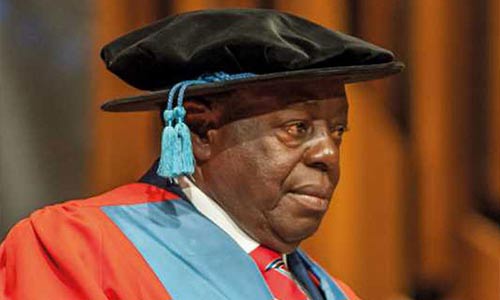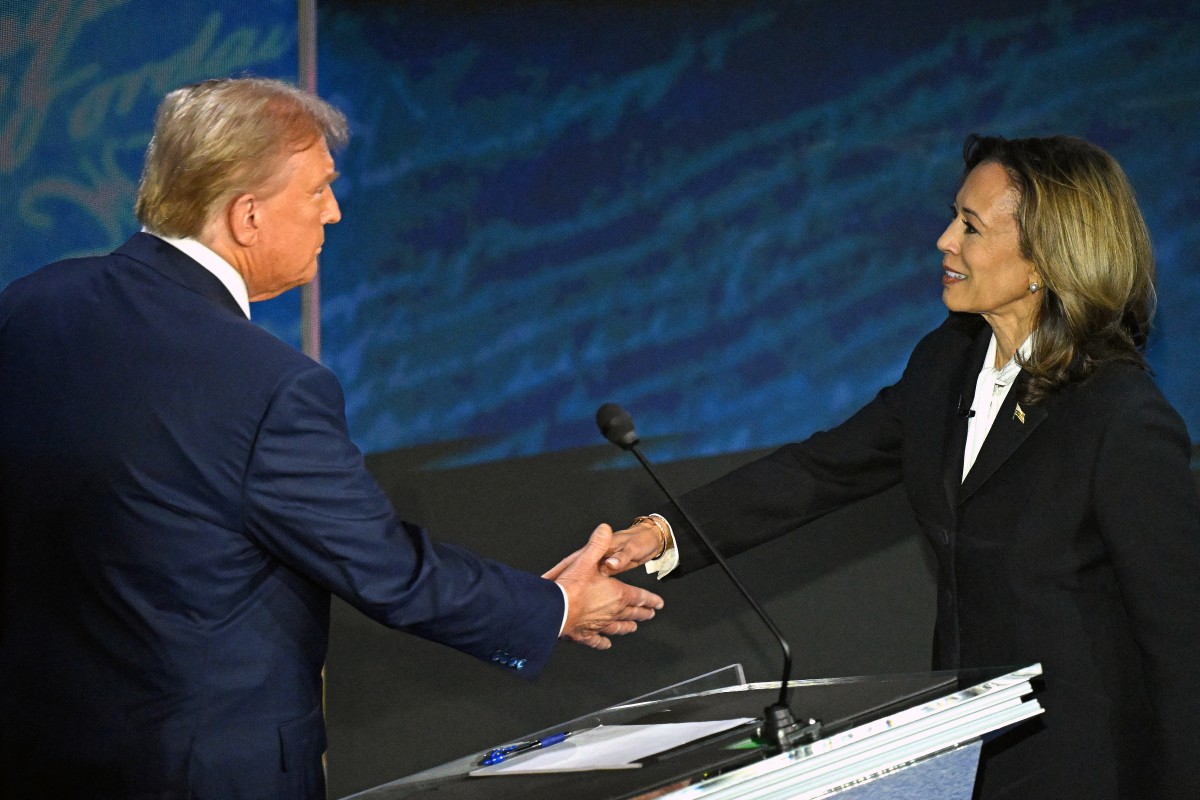By Afe Babalola SAN
Nigerians are in a state of uproar following the announcement by the Minister for Education, Professor Tahir Mamman, that from 2025 the age for entering into tertiary institutions in Nigeria will be 18 years in
accordance with the Nigerian Education Policy. This announcement was hinged on the 4-10-3-4 system of Nigeria Education Policy of 2013.
Under the policy, it is true that application of the 4-10-3-4 system of education will put the age of entrance into tertiary institutions at 18 years. This system has been in existence for decades but was not enforced apparently because all previous governments were aware of the adverse effect on outstanding or gifted children.
To remedy its non-implementation of the education system over the years, the Minister of Education has announced that:
“It is 18 (years). What we did at the meeting that we had with JAMB was to allow underage candidates this year and for it to serve as a kind of notice for parents. …JAMB will admit students who are below that age, but from next year, JAMB is going to insist that anybody applying to go to university in Nigeria meets the required age which is 18. We are not actually coming up with new policies contrary to what some people are saying. We are just reminding people of what is existing. In any case, NECO and WAEC, henceforth, will not be allowing under-age children to write their examinations.
IT’S NOT A MATTER OF AGE. It’s a matter of the years spent at each level of education”.
While the Minister stated that it is not a matter of age, his announcement admits the contrary.
Implications of the sudden implementation of the education system
The Federal Ministry of Education is attempting to make up for its failure to implement the education system over the years. However, the proposed mode of implementation is ill-advised for the following reasons:
Psychological implication
There are millions of students in senior secondary schools who will finish the secondary school before they are age 18 years. Will these students be asked to wait one, two or three years just because the most important pre-qualification condition for writing the WAEC, NECO and JAMB is age?
This policy will forcefully halt academic momentum leading to an irretrievable loss of valuable time. It will certainly affect the psychology of the students negatively leading to loss of interest in education.
Likewise, this policy disproportionately affects gifted students and those who earn accelerated promotions in elementary and secondary schools. The minister recognised these sets of students but communicated his unwillingness to concede special recognition for them. He has this to say on the matter:
“At the moment, this is what we have. But it’s very legitimate to appeal and look at that window of how we care for our smart children. And this is a conversation for another day. Other countries do similar things. They have age specifications for each level of education. But again, they look at the possibilities of smart children. A lot of times in Nigeria, what sometimes is a window eventually becomes a door”.
Admission into tertiary institution
Statistics reveal that 1,985,642 candidates registered for JAMB in 2024. Only 385,050 students were admitted to tertiary institutions in 2023. There is the likelihood that the admission rate will be less than 500,000 in 2024. The question therefore is: will all candidates who are 18 years old be granted admission on the year of first application from 2025?
Nigeria has a peculiar situation that makes it unique and therefore discourages imitating what is obtainable in other climes. Admission is not automatic upon qualification because Nigeria is bereft of adequate tertiary institutions to fully admit deserving candidates. Also, the Federal Ministry of Education cannot guarantee that all qualified candidates will be admitted into tertiary institutions.
Imposing other mechanisms to slow down promising youths is therefore needless, ill-timed and ill-advised in Nigeria
Education tourism
Education tourism is a culture in Nigeria. The speed at which Nigerian students migrate abroad in pursuit of foreign education has continually been on an exponential rise.
Between 2006 and 2016, over 10,000 Nigerian students were enrolled in one university in Benin Republic, not counting several other universities along the coast of West Africa and the West.
The data from the British government education tourism to the UK reveal that there were 6,798 in 2019. This rose to 59,053 in 2022 which amounts to a 768.7 percent difference. In 2022, the number of Nigerian students who received a UK student visa was 65,929.
According to the data, 14,438 Nigerians enrolled for education in the US in 2022 as against 12,860 recorded in 2021.
In Malaysia, there are lots of Nigerians pursuing undergraduate and postgraduate studies. Reports have it that there are over 13,000 Nigerian students in Malaysian universities. The number of new study permits issued to Nigerians for study in Canada increased to 13,745 from 10,550 in 2020. The United Arab Emirates has more than 1,755 Nigerian resident students.
Hungary is gradually becoming a destination country for foreign education with over 700 Nigerian students studying there.
Reports show that there are about 71,000 Nigerian students in Ghana paying about $1 billion annually as tuition fees and their upkeeps. In 2022, over 78,000 Nigerian students were in universities across Ghana compared to 13,919, according to a UNESCO report in 2016, a whopping 560.38 percent.
Foreign education cost Nigeria $28.65billion from 2010 to 2020, with Personal Transport Allowance totalling $58.7billion. These figures do not include countless Nigerian children enrolled in primary and secondary schools abroad.
Many experts and parents indicated that the shabby state of the Nigerian education system is basically fuelling the education tourism, especially as it concerns tertiary education.
This education tourism may be further amplified where parents are desirous to preserve the academic momentum of their wards who fully qualify for admission into tertiary institutions before they are age 18 years.
Brain drain
With over 90 million people under 18 years of age, Nigeria ranks as the world’s third-largest youth population, trailing only India and China. However, there are obviously not enough schools to provide tertiary education to all of them. Most of the students who will qualify for admission into tertiary institutions before they are 18 years would have shown a high propensity for intelligence. What the current education policy does is that it encourages our young brilliant children to seek tertiary education elsewhere.
More often than not, graduates tend to stay in the country where they obtained their tertiary education for employment. This will therefore further encourage the brain-drain that has already plagued Nigeria.
In addition to the above, the people within the working age in Nigeria make up 80.4% of its population. 15.5% of these are unemployed, 80.0% are self-employed. Nigerian youths constitute one of the largest population of migrants to South Europe, America and Canada. Many of those interviewed expressed their fear of the future. To them, migration is a strategy to escape poverty. Currently the nation suffers from massive brain-drain, with most working population or schooling majority travelling out. Is it therefore the proper time for the Ministry to evolve conditions that may further encourage emigration?
Economic implications
Nigeria has suffered one of the worst economic recessions in its history. Education tourism for undergraduate and postgraduate studies will further weaken Nigeria’s currency because of increasing demand for foreign exchange.
Also, many people liquidate their business just to travel abroad. This has increased the rate of unemployment in Nigeria.
CONCLUSION
Section 18(1) of the Constitution of the Federal Republic of Nigeria states that: “The Government shall direct its policy towards ensuring that there are equal and adequate educational opportunities at all levels”.
Denying tertiary education to duly qualified candidates is unconstitutional and harbours dire consequences for the Nation.
The Ministry for Education ought to divert its attention to make education attractive in Nigeria and put measures in place to improve the educational standards to rival those available outside the country. Imitating the practices in other countries without putting measures in place to guarantee that quality education is made available to students with exceptional intelligence is a misplaced priority. The tertiary education in Nigeria is plagued by strikes, crippling infrastructure and various other conditions that significantly slow down the progress of the students.
Forcing qualified candidates to suspend their education abruptly only because of age is inimical to the core objective of the Ministry for Education which is national development. As practiced in other countries, this rule of minimum age of entry into tertiary institution must be flexible in favour of gifted students. The Ministry should also evolve modalities to recognise and nurture gifted students on time such as setting up the schools for the gifted.
The Hon. Minister said that this policy aims to align Nigeria’s educational system with international standards. There are a lot of things Nigeria can emulate, such as the quality of education, curriculum, educational infrastructure, staff welfare, TETFund for private universities, loan facility for private universities, and support for hospital for private universities and not for Federal Teaching Hospital alone.
Age which has by acquiescence deleted from the 2013 Policy Law should not be a priority at all.
To make age mandatory as pre-qualification requirement for tertiary education at this time is a misplaced priority.
As I was writing this article, I read a newspaper publication of today about Dorothy Jean Tillman a 17-year-old Ph.D. holder from the Arizona State University College and I asked myself, when will Nigeria have its own Dorothy?
*Please send your comment/ contribution to president@abuad.edu.ng
In this article:

